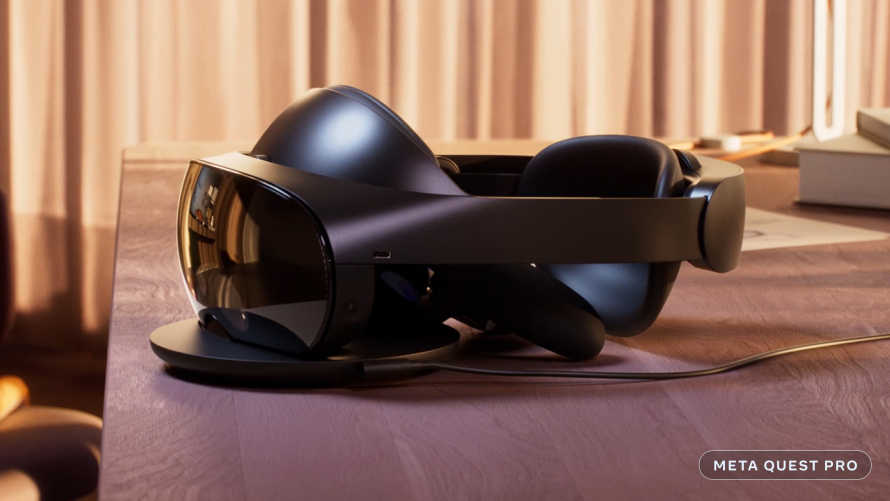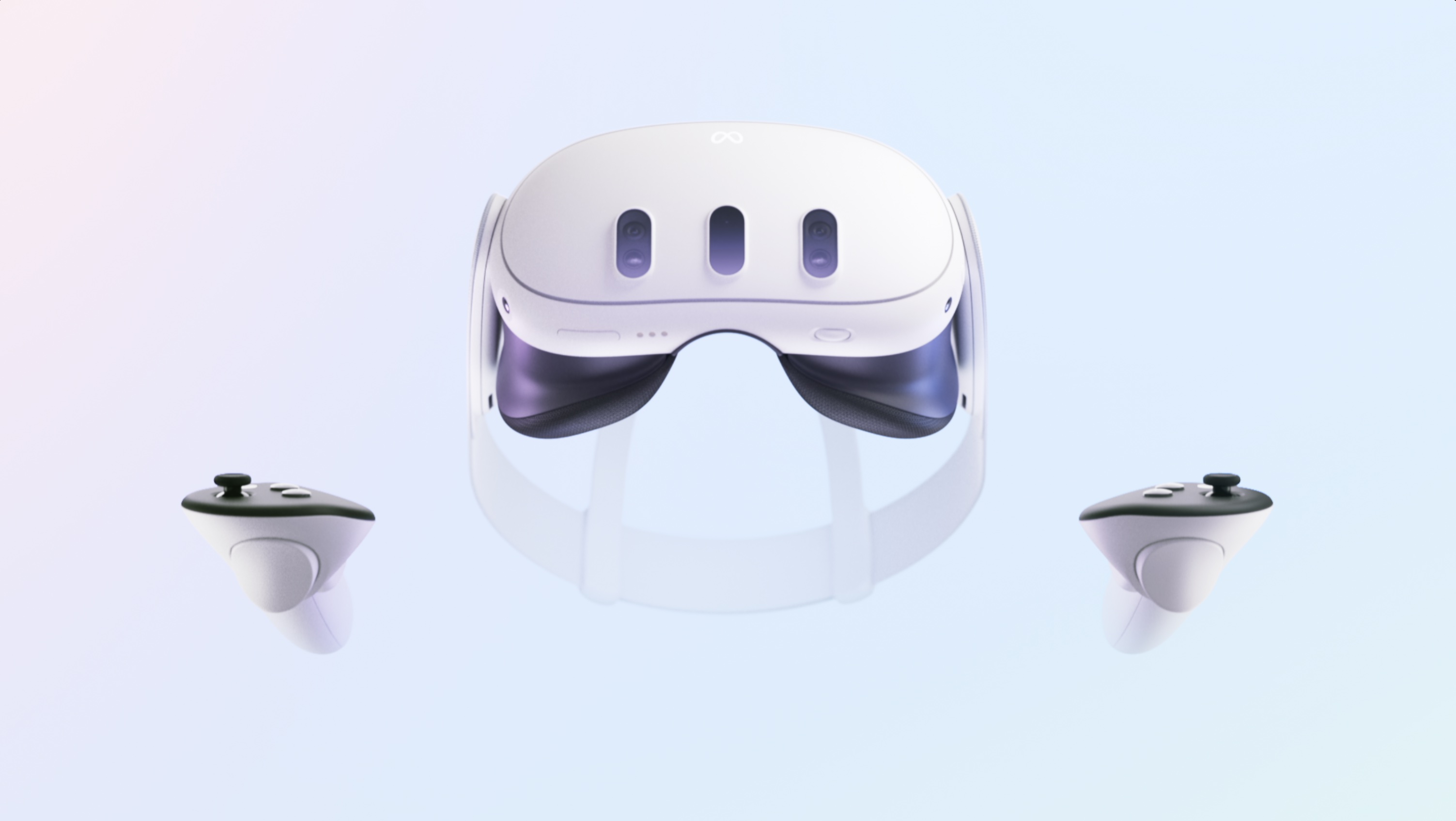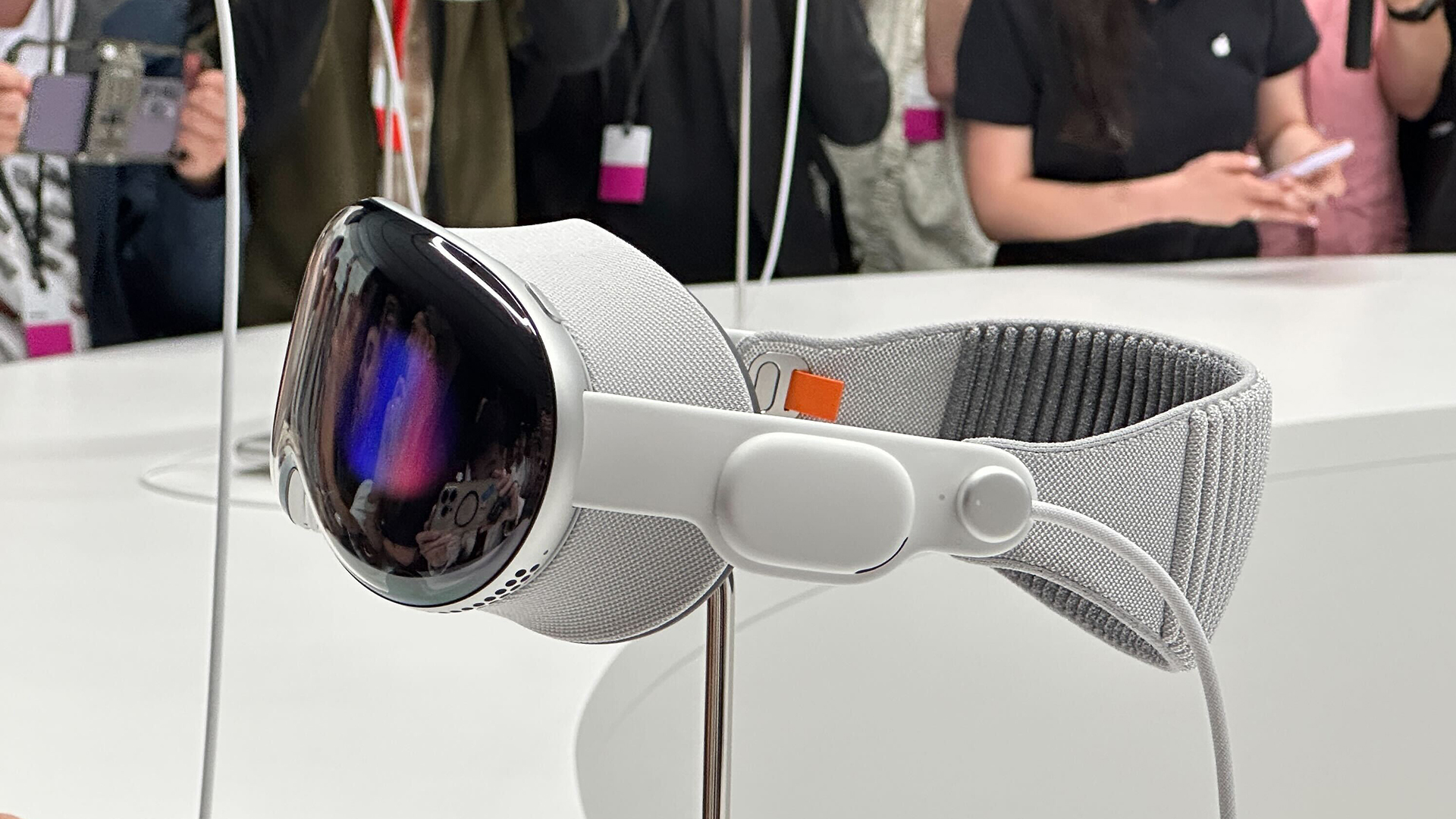Meta denies Quest Pro 2 cancelation – but VR fans should hope it doesn't launch soon
The Quest Pro 2 can learn from the Quest 3 and Vision Pro

You may have seen the rumors that Meta has canned development on the Meta Quest Pro 2, a follow-up to the VR headset we gave four stars in our Meta Quest Pro review. But Meta has now denied that's the case, even if this doesn’t mean we should expect it to launch anytime soon.
Responding to the reports, Meta CTO Andrew Bosworth took to Instagram Stories – the video was reposted to Twitter by another user – to explain that the Quest Pro 2 isn’t canceled because it doesn’t technically exist yet.
Boz is getting tired of rumors lol https://t.co/HGB6Njy9va pic.twitter.com/qDGXFMtBrdJuly 21, 2023
As we’ve written before, Meta is constantly working on prototype VR headsets that may never see the light of day (except as demos at tech conferences for us to try out).
Bosworth explained that until Meta decides which of its prototypes is “right,” accelerates the development, and gets it out the door it doesn’t get a proper name. That’s why the Meta Quest Pro was known as Project Cambria until it was ready to launch because it wasn’t the Pro in Meta’s eyes until it was.
While the language used isn’t confirming anything explicitly, Bosworth adds that the reports are most likely about a prototype project that may have been canceled. This project could have been set to become the Quest Pro 2 down the line but – in a way that's somewhat splitting hairs – it isn’t the Quest Pro 2 yet, so we technically can’t say the Pro 2 has been canceled.
Confusing explanation aside, it’s probably not a bad thing if Meta is still at the drawing board stage for the Quest Pro 2. The VR space has changed a lot since the original Quest Pro launched last year, and it may be a good thing to wait and release the right Quest Pro 2 rather than rushing one out.
Who needs a Meta Quest Pro 2 if we have a Quest 3?
I’ve previously written that the Quest 3 is something of a slap in the face for Quest Pro owners. Yes, the Pro has many advantages the Quest 3 lacks – like its counterbalanced weight design, eye-tracking, and improved display – but in the most important ways right now the Quest 3 will take the lead.
Get daily insight, inspiration and deals in your inbox
Sign up for breaking news, reviews, opinion, top tech deals, and more.
It will supposedly be Meta’s “most powerful headset yet” with better processors and improved mixed reality – the most useful Quest Pro features given the current state of VR.

Yes, new tech will always supplant older models and bring cool features down in price (and that’s a good thing for making tech more accessible), but I’d never expect the budget-friendly iPad (2023) to rock an M3 and beat the significantly more expensive iPad Pro (2022).
Everyone who bought the iPad Pro (or Quest Pro) will feel ripped off as if they had waited barely a year they’d get something better for a lot less – Quest Pro owners who bought it at launch will have spent $1,000 / £1,000 / AU$900 more than Quest 3 owners, when that headset launches.
I've argued that I don’t think Meta should power down the Quest 3 or make it more expensive (ideally, it will still be close to the Quest 2’s $299 / £299 / AU$479 launch price). Instead, Meta should think carefully about how it approaches a Quest Pro 2. This current situation makes me think it is being more cautious.
If Meta is going to create a Quest Pro 2 – and give it a significantly higher price tag than the regular Quest 3 – it needs to make sure it’s a next-level machine that deserves the high cost not only at launch but until the Quest Pro 3 arrives.
If the Quest 4 releases and once again blows the Quest Pro 2 out of the water in key areas like their predecessors, Meta will teach us that the Pro line isn’t worth paying attention to as something much better (and cheaper) is on its way soon.
Apple Vision Pro: the new player in the game
At the same time, Meta would be smart to see what reactions to the Apple Vision Pro are like.
The Vision Pro is looking like it’ll be a truly next-level XR headset (XR being a catchall for VR, AR, and mixed reality) with an all-new control scheme and two processors (an M2 and an R1) rather than one – giving it the same power as many of the best MacBooks and Macs. It is also ridiculously expensive, coming in at $3,499 (around £2,800 / AU$5,300) to help Apple afford these major upgrades.
Because of this sky-high price, I don’t expect many people will pick one up, but I could be proven wrong if Apple’s developers launch some incredible must-have software. No matter how much success Apple’s headset sees, however, Meta will want to see how the rival headset fairs before launching its Quest Pro 2.

If people are willing to pay more for a revolutionary product, Meta may want to take this into account and launch a Quest Pro 2 that more closely resembles the performance (and price) of the Vision Pro. If the Vision Pro is just too pricey and unpopular, Meta may want to keep its Quest Pro 2 at a relatively low cost instead – albeit with less significant enhancements.
With the Vision Pro not expected to launch until early 2024, I’d be surprised if we saw a Meta Quest Pro 2 until at least early 2025, maybe even later. A later launch date would not only give Meta time to develop the Meta Quest Pro 2 we want, but it would give the Meta Quest 3 time to breathe before we start building up hype for the next Meta headset. But as with all speculation, we’ll have to wait and see what Meta officially announces – until then we’ll have no concrete idea of what it has up its sleeves.

Hamish is a Senior Staff Writer for TechRadar and you’ll see his name appearing on articles across nearly every topic on the site from smart home deals to speaker reviews to graphics card news and everything in between. He uses his broad range of knowledge to help explain the latest gadgets and if they’re a must-buy or a fad fueled by hype. Though his specialty is writing about everything going on in the world of virtual reality and augmented reality.